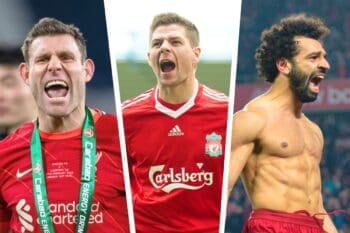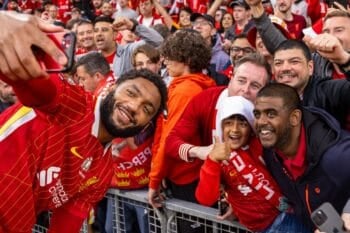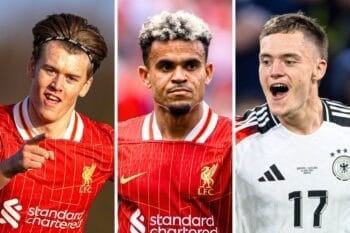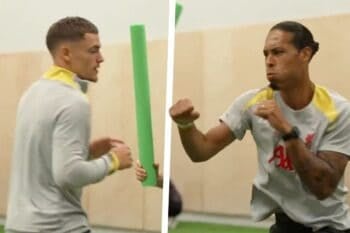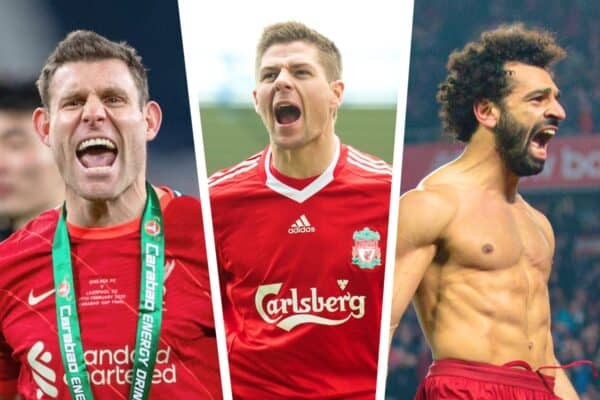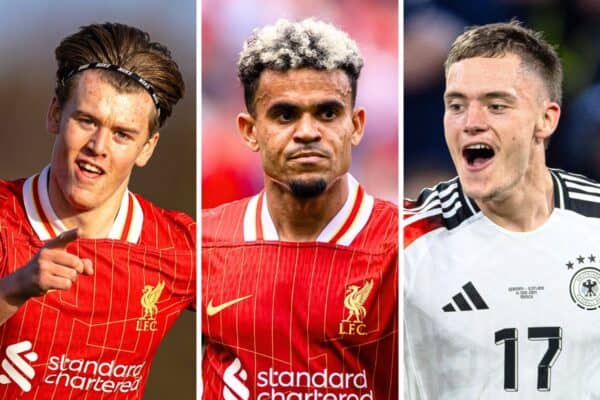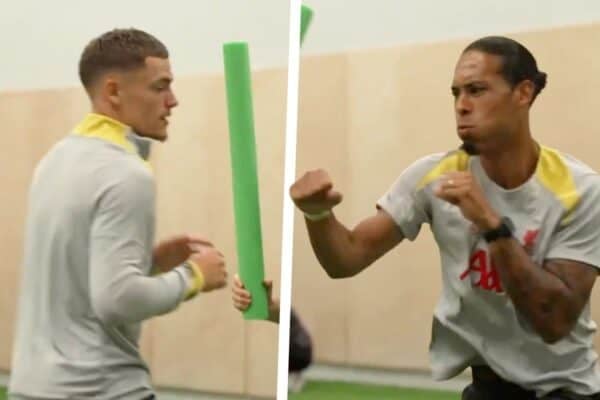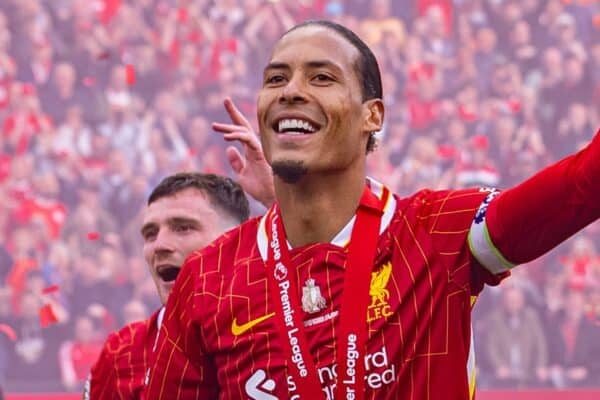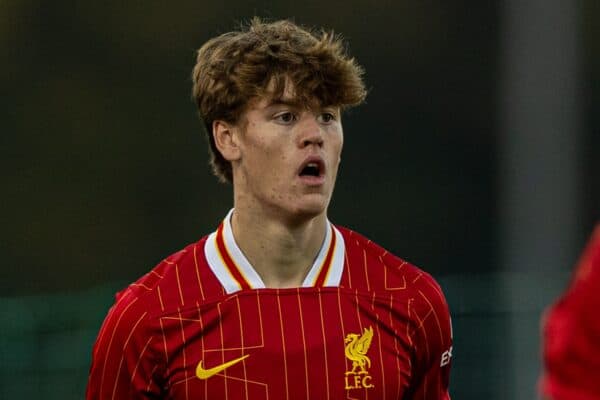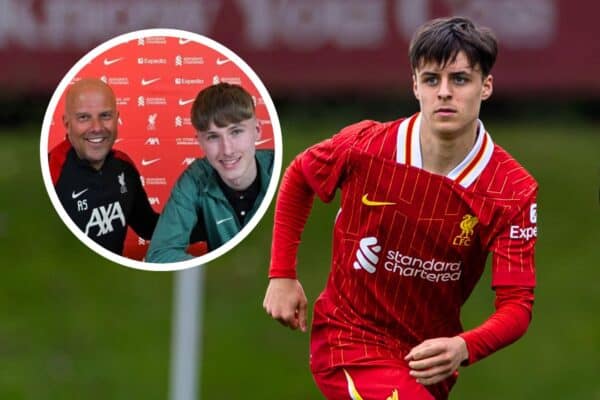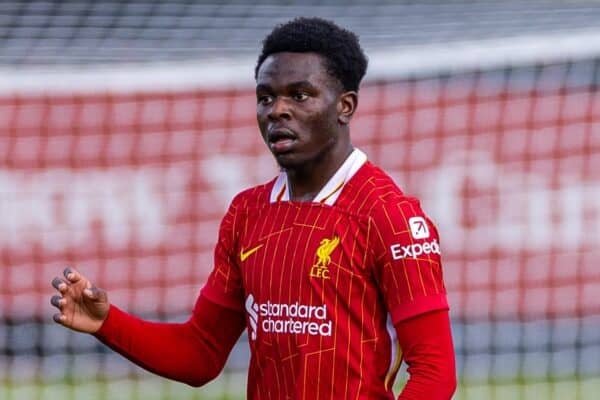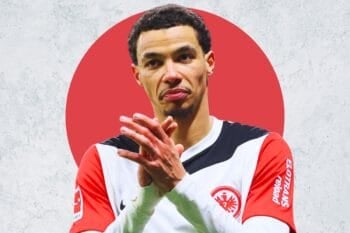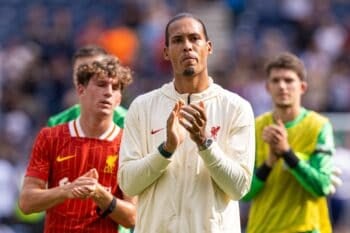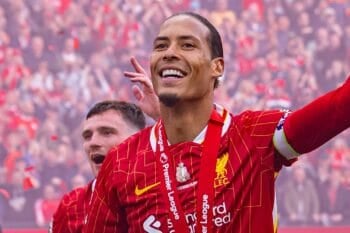Liverpool’s European adventures began in the 1964-65 season, and could be described as a journey through fire and ice. The European Cup, as it was more commonly known in those days, was open to clubs that had won their domestic league championships, and so it was Liverpool as League Champions from the 1963-64 season who entered the competition in the summer of 1964.
The first match was in the preliminary round, away to Reykjavik, a team of amateurs who were Icelandic champions. That was a simple 5-0 win, and was followed four weeks later by a 6-1 win at Anfield. The next round was more challenging, with Belgian champions Anderlecht falling 4-0 on aggregate. FC Cologne were equally as impregnable over two legs as Liverpool were, and so with an aggregate score of 0-0 the quarter final went to a replay in Rotterdam where the match ended 2-2, even after a scoreless thirty minutes of extra time. The match was then decided on a coin toss, with Liverpool coming up as winners. The next round, which would be the semi-final, has gone down in Liverpool legend as one of their finest ever European nights at Anfield, and also as one of the worst injustices in the history of European football.
 See also: History and the right of revenge
See also: History and the right of revenge
As the 1964-65 season drew to a close, Liverpool were well out of the race for the League Championship but they ended their domestic season with a win at Wembley that gave the club their first ever FA Cup. The idea that they could also win the European Cup, or even to be the first British club to reach the final would have been beyond anybody’s wildest dreams at the beginning of the season. But, they were within two legs of doing so, with Italian and European Champions Inter Milan to contend with on their way there. It was an exciting time to be a Liverpool supporter, with the club just coming off their first Championship season in fifteen years and being followed with the first FA Cup win for the Reds at the end of the next season.
Reaching the final of the European Cup was never going to be a simple task, with Inter supremely confident that they would show the English club how the game was meant to be played. After all, Inter had already beaten the mighty Real Madrid the previous year to show that they deserved to be the holders of the trophy, and had also gone on to win the Intercontinental Cup. Bill Shankly‘s response was to say, ‘œOur boys will show them what they can do out there on the pitch’. In what was probably the greatest psychological master stroke in Liverpool’s history, Shankly planned a special reception for the Italians. Inter were told a little early that it was time to come out onto the pitch to warm up, and as they did their stretching Gordon Milne (who had been out with a knee injury) and Gerry Byrne (who had played through more than two hours of pain after he broke his collar bone at Wembley) came out carrying the FA Cup between them. The roar of the crowd increased as the trophy was paraded around the ground, climaxing as they passed The Kop, and was enough to cause the Italian players to be visibly shaken by the noise.
The Liverpool players then came out onto the pitch to an equally noisy reception. For the Inter Milan players it sounded like a huge pack of hounds from hell, while for the Liverpool players it was a sound that filled their hearts and lifted them way above any possibility of fear. There was no way that Liverpool would fail to win on this night, and so it was that they came away after ninety minutes with a 3-1 result to take into the second leg. The chances for Liverpool were coming thick and fast right to the end, but Inter just managed to hold out against any more goals. There was some controversy over a disallowed strike from Lawler, who was called for offside, but that was not something that was worrying Shanks or the boys in Red. It was said by many that no matter if Brazil had been the opponents that night, even they would have been overcome. Inter’s coach Helenio Herrera could only say, ‘œWe have been beaten before, but never defeated. Tonight we were defeated.’ There wasn’t too much time to revel in the glory of that famous win, with the second leg to take place in the San Siro stadium in Milan eight days later.
 Liverpool arrived in Italy ready to prepare for the match, only to face a fiercely hostile crowd. The psychological tricks used by Shankly, as well as the intimidation and mockery of The Kop, was about to be repaid with interest. The Milanese fans displayed banners accusing the Liverpool players of using performance enhancing drugs. How else could anyone explain the level of energy displayed in the first leg by a club that had struggled through extra time in a cup final only three days earlier? The accusations were enthusiastically picked up by the Italian press, and as a result the club faced insults and hostility wherever they went. That was only the first stage of assault, with the team being kept awake at their hotel on Lake Como by church bells that rang loudly every hour throughout the night. Shankly and his staff met with the church officials and explained the need for peace, but the response was that the bells had rung this way for centuries and would not be stopped now, no matter who was staying in the nearby hotel. The audible assault continued the next night, with honking car horns to add to the din. It would surely be a relief for the players to get to the stadium and just play the game. After all, that’s what they were here for, so let the competition commence and may the best team win.
Liverpool arrived in Italy ready to prepare for the match, only to face a fiercely hostile crowd. The psychological tricks used by Shankly, as well as the intimidation and mockery of The Kop, was about to be repaid with interest. The Milanese fans displayed banners accusing the Liverpool players of using performance enhancing drugs. How else could anyone explain the level of energy displayed in the first leg by a club that had struggled through extra time in a cup final only three days earlier? The accusations were enthusiastically picked up by the Italian press, and as a result the club faced insults and hostility wherever they went. That was only the first stage of assault, with the team being kept awake at their hotel on Lake Como by church bells that rang loudly every hour throughout the night. Shankly and his staff met with the church officials and explained the need for peace, but the response was that the bells had rung this way for centuries and would not be stopped now, no matter who was staying in the nearby hotel. The audible assault continued the next night, with honking car horns to add to the din. It would surely be a relief for the players to get to the stadium and just play the game. After all, that’s what they were here for, so let the competition commence and may the best team win.
The San Siro stadium had provided no less than 2,000 guards to ensure that the crowd would be contained. That may have worked to keep them off the field, but did little to prevent them from abusing their hated opponents. As the players took to the field, they were spat upon by the Italian supporters, and subjected to verbal abuse. It got worse from there as the crowd began to light bonfires in the stands and set off rockets and flares, some of which shot straight across the pitch. The players were fortunately not injured by any of these missiles, but Bob Paisley was hit by a smoke bomb which ruined his clothes. The Reds had literally now gone through fire and ice, from the coolness and calm of Iceland nine months earlier to the fiery hell of Milan’s San Siro. It was clear to all that this was somehow just not going to be Liverpool’s night. Surely though, there could be nothing worse that could happen once the match started. If Liverpool just settled down and played their game then they should be capable of holding on through ninety minutes. That is, they could have if all they had to face was a hostile crowd behind the European Champions. What they couldn’t overcome was the apparent corruption that was to follow.
At the start of this European Cup competition, the San Siro stadium had been chosen to host the final in May. It would be a great day for Internazionale and for all of Italy if they could successfully defend their crown in their own stadium. That was thought to be the natural order of things – after all if Inter could win the trophy once then why not twice? The only obstacle in the way now was a pesky team of upstarts from Merseyside who were on the verge of upsetting all of their plans. Perhaps a little help could be arranged for the home leg, just in case. It’s never possible to prove, but it appears that there may have been some corruption at play in the way the officials refereed the match. Allegations of corruption in Italian football? Surely not!
Senor Ortiz de Mendibil was in charge of the match that night, and he quickly showed that he would use his whistle to control the match in his own particular style. The game was underway for only a few minutes, when the Liverpool players started to learn that Senor de Mendibil was sure to blow his whistle for a foul almost every time they made a tackle, whether it was legal or not. That not only stops the flow of play, but also has the cumulative effect of discouraging and demoralising the Liverpool players to the point where they just don’t want to try tackling anymore. That handicap might have been possible to overcome if they could have somehow held off the Inter attack without tackling, but even though that was unlikely but at least possible, it still may not have been enough to prevent the match from being one-sided.
Willie Stevenson, as dependable as ever in defence, made a fair challenge for the ball on the edge of the penalty area and the whistle was blown. The referee held up his arm, which normally signals an indirect free kick, but Corso curled it directly into the net. If it was called as indirect then it should have been disallowed, but the goal was given and the aggregate was now down to 3-2 for the Reds with the game less than ten minutes old. That was a tough blow, but worse was to come only a minute later. Tommy Lawrence picked up the ball in his area after an Inter attack had been neutralised, and was bouncing it as he prepared to kick it back into play. In mid-bounce, Peiro came up from behind and kicked the ball away from Lawrence and then simply (and cheekily) chipped it into the unguarded net. In the strict technical sense, if the ball was not actually in contact with the ‘˜keeper’s hands, then it may not be called as a foul. But, the standard in all of Continental football was that any challenge on a goalkeeper would be penalised, and so it would be reasonable to expect that same standard now. The aggregate score was now even at 3-3, and it was clearly going to be impossible for Liverpool to play their game under the refereeing that night. If any credit at all should be given to Inter, it can only come for the final goal which was from a stunning shot in the second half, just beyond the hour mark. It ended inevitably 3-0 on the night and 4-3 on aggregate.
As soon as the final whistle blew, the whole of Milan seemed to go wild with joy. The traffic came to a standstill as fans celebrated in the streets, honking their horns and leaning out of their cars to wave their flags. The coach that was to take the Liverpool players back to their hotel had to run the gauntlet of revelling Inter supporters who taunted the players as they went inching along, and what was normally a short ride took over an hour. The only thing that Bill Shankly could say to his players after that disastrous event was,
‘œAll right, we’ve lost. But see what you’ve done. Inter Milan are the unofficial champions of the world and all those people are going mad because they are so pleased that they have beaten Liverpool. That’s the standard you have raised yourselves up to.’
It seemed to all of Liverpool that the odds had been unfairly stacked against them that night, and Tommy Smith also had a few comments to make saying,
‘œSuch was the set-up, if we had scored six, they would have scored ten. At the bottom of our hearts we knew it was no use. I was so frustrated afterwards that I kicked the referee, but I got no reaction.’
More than ten years later, when both Shankly and Smithy had retired from the game, they gave a more sinister evaluation. ‘œOf all the people that I’ve had to deal with over the years,’ said Shankly, ‘œhe’s the one that haunts me to this day.’ Smithy was supposedly a little more direct in saying, ‘œI’d do time for him.’
The dream of a first European Cup may have been over, but for Bill Shankly he just considered it to be part of the learning process. More importantly perhaps, it taught everyone that Liverpool had nothing to fear in Europe. As Shankly explained,
‘œIn the European Cup you meet cunning, bluff and gimmicks. Don’t get me wrong, I am not one of those people who believe that the world ends at the White Cliffs of Dover. I am all for the Soccer Common Market. My only concern is to halt a naïve swing in the opposite direction and the belief that the Latins rule the waves. So much of the continental game is based on the safety first principle, to the detriment of entertainment.’
Liverpool captain Ron Yeats was a bit more placid in his evaluation. Having watched them go on to beat Benfica 1-0 in a mud bath of a pitch, he lamented on what might have been.
‘œThat would have been our sort of pitch. We would have battered Benfica. It must have been our European Cup. Having said that, we suffered for our lack of know-how and froze a bit in that white-hot atmosphere. We went at them when we should have sat back and soaked up the pressure. It taught us a lot.’
It’s now more than forty years later, and having only played them once in a friendly since then (we won 2-1) we finally have a chance to avenge the loss from that infamous night. Still, no matter what may happen this time, we can certainly say that the lessons from that first European experience have since been learned ‘“ and learned well.

